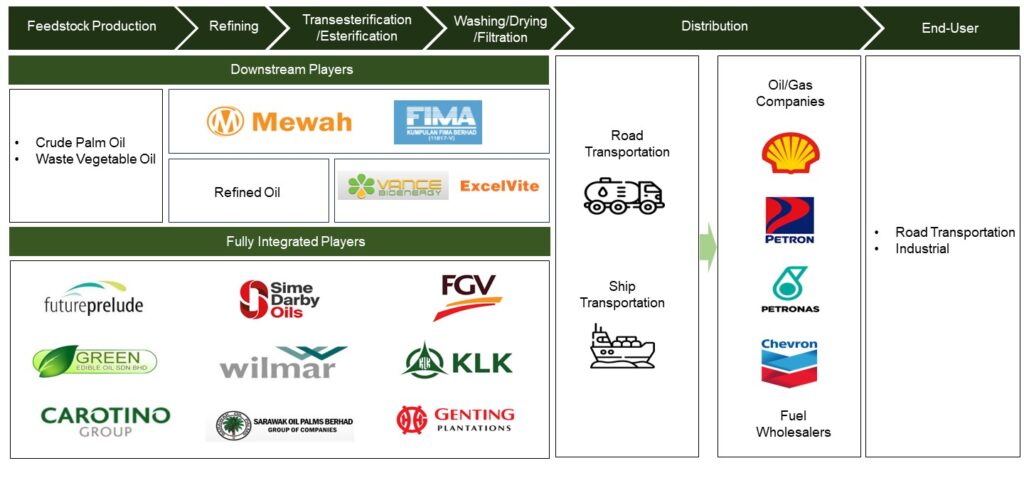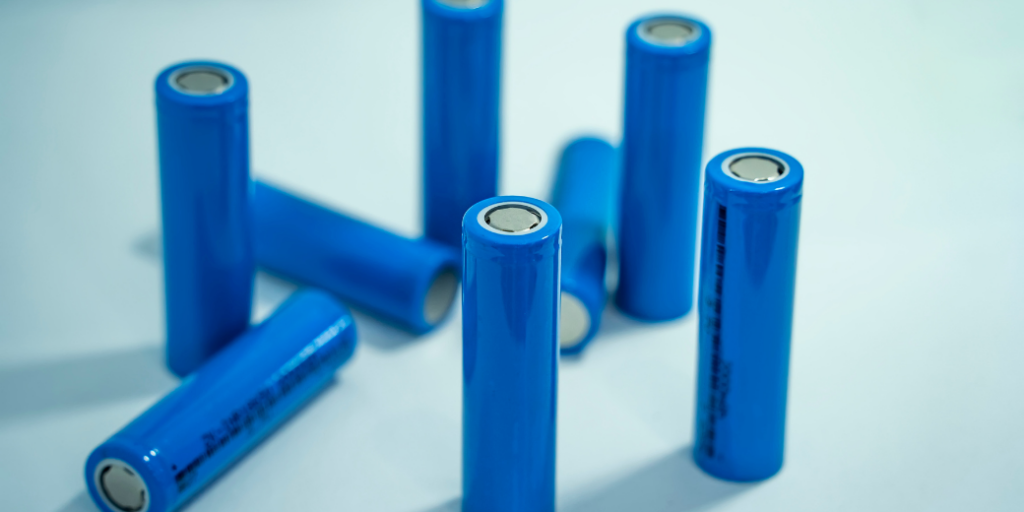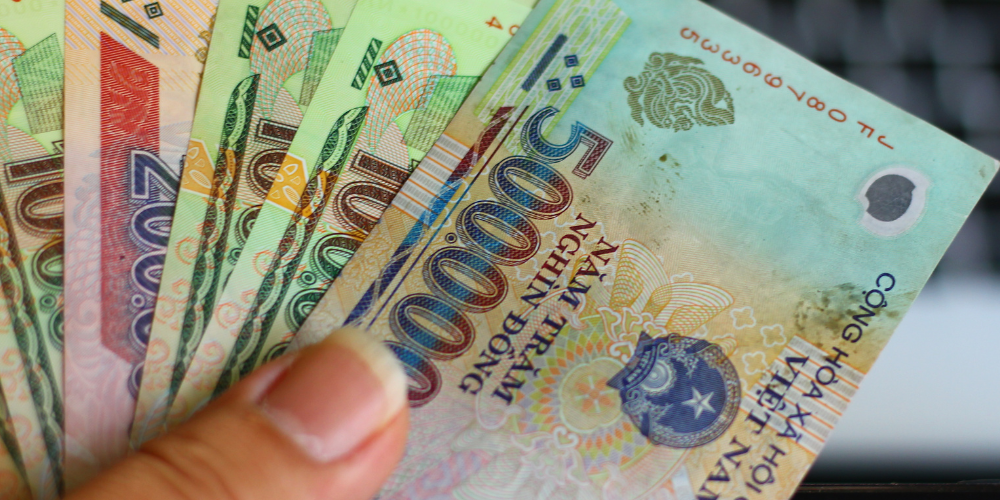Báo cáo ngành
Biofuels Industry in Malaysia

Summary
This article provides a brief overview of the Malaysian biofuel industry, primarily centred on the production of biodiesel using palm oil feedstocks. (Updated: 02 October 2023)
What is Biofuel?
Biofuel is a renewable energy source derived from feedstocks like plants, algae, animal waste, etc. Unlike fossil fuels such as coal, natural gas, and petroleum, these feedstocks can be replenished consistently. Biofuels can be divided into first-generation, second-generation, and third-generation biofuels based on the feedstocks they are derived from. First-generation biofuels come from food crops like sugar cane, soybeans, wheat, and vegetable oil. Second-generation biofuels use materials like wood, grass, food and organic waste, and specific crops, typically on less fertile land. This land, known as marginal land, isn’t suitable for growing food crops. Third-generation biofuels utilise engineered crops like algae.
Currently, ethanol and biodiesel reign as the world’s most prevalent biofuels. Ethanol, an alcohol, serves as a blending agent with conventional gasoline, enhancing octane levels and curbing emissions like carbon monoxide and other smog-inducing pollutants. Meanwhile, biodiesel takes the lead as a primary transportation fuel.
Advantages and Disadvantages of Biofuels
Biofuel, in contrast to fossil fuels like coal, natural gas, and petroleum, stands out as a renewable energy source. Derived from renewable and biological materials, it can even be produced from waste materials, which bodes well for sustainable future planning.
Moreover, biofuel holds promise in the fight against climate change, as it has the potential to significantly lower greenhouse gas emissions when compared to traditional fossil fuels. This advantage has propelled biofuels to the forefront of global efforts to combat climate change.
Advantages of Biofuels

One significant drawback of first-generation biofuel production is that it uses land for growing crops, which could otherwise be used to produce food for consumption. Additionally, the growing demand for biofuels can result in the conversion of natural habitats, such as forests and grasslands, into croplands, increasing the risk of deforestation.
The production of biofuels is often more expensive and technologically demanding due to the costs involved in cultivating and processing the feedstocks. Malaysia, for instance, exclusively produces biodiesel due to technological constraints that render ethanol production relatively infeasible. Moreover, biofuels may not be compatible with all types of vehicles, potentially leading to engine damage. (Source: Biofuels Industry Overview – SPEEDA Industry Report – Malaysia)
Disadvantages of Biofuels

Report Overview: Biofuels Industry in Malaysia
Salient Features
Biodiesel and ethanol are both popular biofuels worldwide, but Malaysia only manufactures biodiesel due to the infeasibility of ethanol production.
Malaysia is self-sufficient in biodiesel, producing enough to meet its domestic demands without the need for imports.
Despite government mandates requiring the usage of biodiesel, consumption is at low levels.
Biofuel exports are at risk, with the largest export destination, the European Union (EU) reducing the import of palm oil-based biofuel, claiming the harmful environmental effects of palm oil production.
Value Chain/Business Model
- The industry players are divided into two categories: fully integrated palm oil-producing companies integrated across the value chain and downstream players entering at different stages.
- Fully integrated palm oil companies enjoy cost advantages over downstream players procuring crude or refined oil from external parties.
Other Points
- The transportation sector leads in biofuel consumption followed by industrial consumers.
- Palm oil-based feedstock is the dominant raw material in biofuel production.
- New players are looking to enter the relatively concentrated industry by beginning the production of renewable biodiesel and biodiesel produced by using alternative crops.
Among biofuel companies in Malaysia, Sime Darby plantation is one of the first companies to commercialise palm oil-based biodiesel production in Malaysia.
Malaysia’s Biofuels Industry Value Chain

Full Report Index: Biofuels Industry in Malaysia
The full report is available only in Speeda.
Industry Overview
- Biofuel Adoption Markedly Low, Despite Comprehensive Government Mandates and Regulations
- Malaysian Biofuel Production Limited to Biodiesel; the Transportation Sector Consumes the Major Portion
- Palm Oil Feedstocks Dominate Production; the Industry Faces Capacity Underutilisation
- Fully Integrated Palm Oil Producers Have an Edge in Biofuel Production
- Delays in the Roll-Out of Government Mandates Slow Industry Growth
Market Trends
- Biodiesel Capacity Utilisation Lags Amidst Recovery in Consumption
- EU Restrictions on Palm Oil-Based Biofuels Hit Exports
Competitive Trends
- Relatively Concentrated Industry Characterised by Fully Integrated Palm Oil Producers and Downstream Players
- New Players Enter By Venturing into Advanced Biofuel Production
- Bremfield; Subsidiary of Mewah, an Edible Oils and Fats Company
- Sime Darby Oils Biodiesel; Fully Integrated Producer Under the Sime Darby Plantation Group
- Nexsol (Malaysia); Subsidiary of Oleochemical and Edible Oil Firm, Wilmar International
























